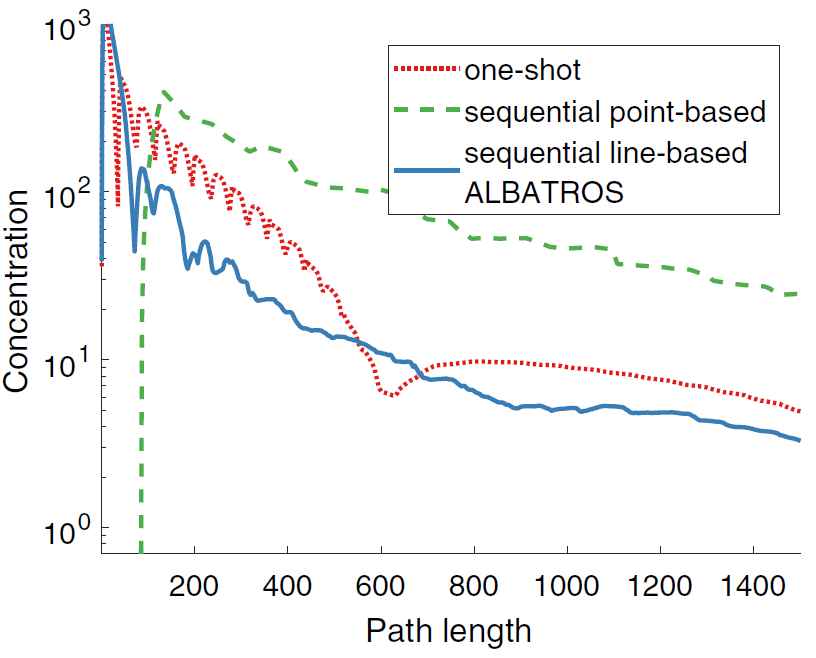ALBATROS
Brief description
The Adaptive Line-based sampling TRajectOrieS (ALBATROS) algorithm is a sequential sampling algorithm to gradually increase the sampling density over the entire measurement space while minimising the traversed path length of the measurement probe. It consists of a combined coverage path planning algorithm and a path sampling algorithm. The ALBATROS algorithm is functional in any convex 2D or 3D space.
Key features
- Sequential line-based sampling.
- Gradual increase of sampling density across the entire measurement space.
- Works in any convex 2D and 3D space.
3D Convex Buckyball Space
The ALBATROS algorithm can be applied in any convex 2D or 3D space. Below is an example of the algorithm being used to explore a 3D space set up by a Buckyball which has the shape of a soccer ball.
The ALBATROS algorithm outperforms traditional one-shot and sequential sampling methods, optimally spreading sampling points in the entire sample space.

Download instructions
The program code (ALBATROS.m) is available here: ALBATROS.zip
ALBATROS requires the Multi-Parametric Toolbox 3.0 for internal computations.
Restrictions of use:
If the code is used in a scientific work, then reference should be made to the following publication:
